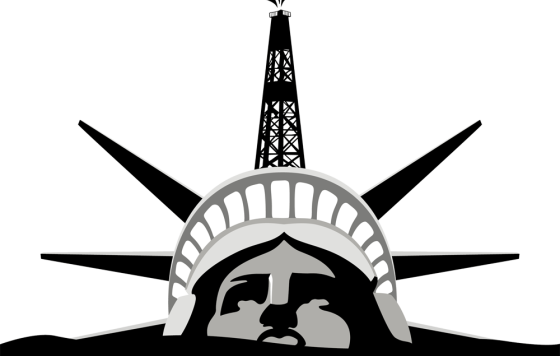Americans should understand the goal of the oil and gas industry: drill, extract, and burn all the oil and gas resources it can acquire. The business plan is to burn it all.
In order to achieve this goal they need help — and they are getting it. It is no accident that policies the oil and gas industry prefer are continuously prioritized at the highest levels of government. With vast resources at its disposal, this industry can strategically spend whatever it takes in order to garner, and maintain, favorable political treatment.
The industry uses this money and the country’s campaign finance system to its advantage. Oil and gas companies benefit from campaign-finance loopholes that allow unlimited sums of outside money in elections. Since 2010, these loopholes have helped facilitate a massive network of dark-money organizations that exploit technicalities in the tax code. This enables groups to raise unlimited sums of money from undisclosed donors in order to influence both legislation and the outcome of an election.
In the 2016 election cycle alone, the oil and gas industry contributed over $103 million — 88 percent went to Republican interests. This included millions in donations to Super PACs and untraceable dark money groups.
In addition to campaign finance loopholes, the oil and gas industry asserts its dominance over the policy-making process through extensive lobbying operations with massive budgets. When describing the oil and gas industry’s corporate-lobbying efforts, Senator Sheldon Whitehouse commented that “[t]hey often have virtually unlimited money and usually enjoy the remorseless staying power that comes from this effort being a profitable exercise.”
The industry spent over $119 million in 2016 on lobbying and employed 722 registered lobbyists; more than enough to provide each member of Congress with a personal oil and gas lobbyist. In the first quarter of 2017, the industry spent $36 million. The American Petroleum Institute, the industry’s largest and most influential trade association, increased its lobby spending by 75 percent in the first quarter of 2017.
Extreme spending generates public policy outcomes that reflect the priorities of the oil and gas industry and not the American people. For instance, the Trump Administration took steps in the first 100 days to reverse, roll back, or delay 23 environmental rules. The fossil fuel industry lobbied for almost all of these changes, which make it easier to produce oil and gas with fewer environmental and public health protections.
In a previous report, The Chilling Effects on Oil & Gas Money on Democracy, Clean Water Action outlined how large polluter interests influence environmental policy and oversight. The report focused on the broad, historic formula for acquiring power and influencing policymakers, which relied on campaign finance and lobbying. The report demonstrated that the oil and gas industry continues to have a major advantage over the American people when it comes to regulatory policy, mainly due to the legacy impact of their early influence in certain rulemaking processes.
This report focuses on the 2016 election cycle, the Trump Administration’s environmental and energy policy and the role that oil and gas industry plays in distorting our system of democracy while putting our water, air, land, health and climate at risk.
It is clear that public interest groups cannot currently match the oil and gas industry in the areas of campaign finance and lobbying. Without significant reform efforts, the American people will continue to suffer at the hands of starkly unpopular policies that the oil and gas industry pushes for its own financial gain.

